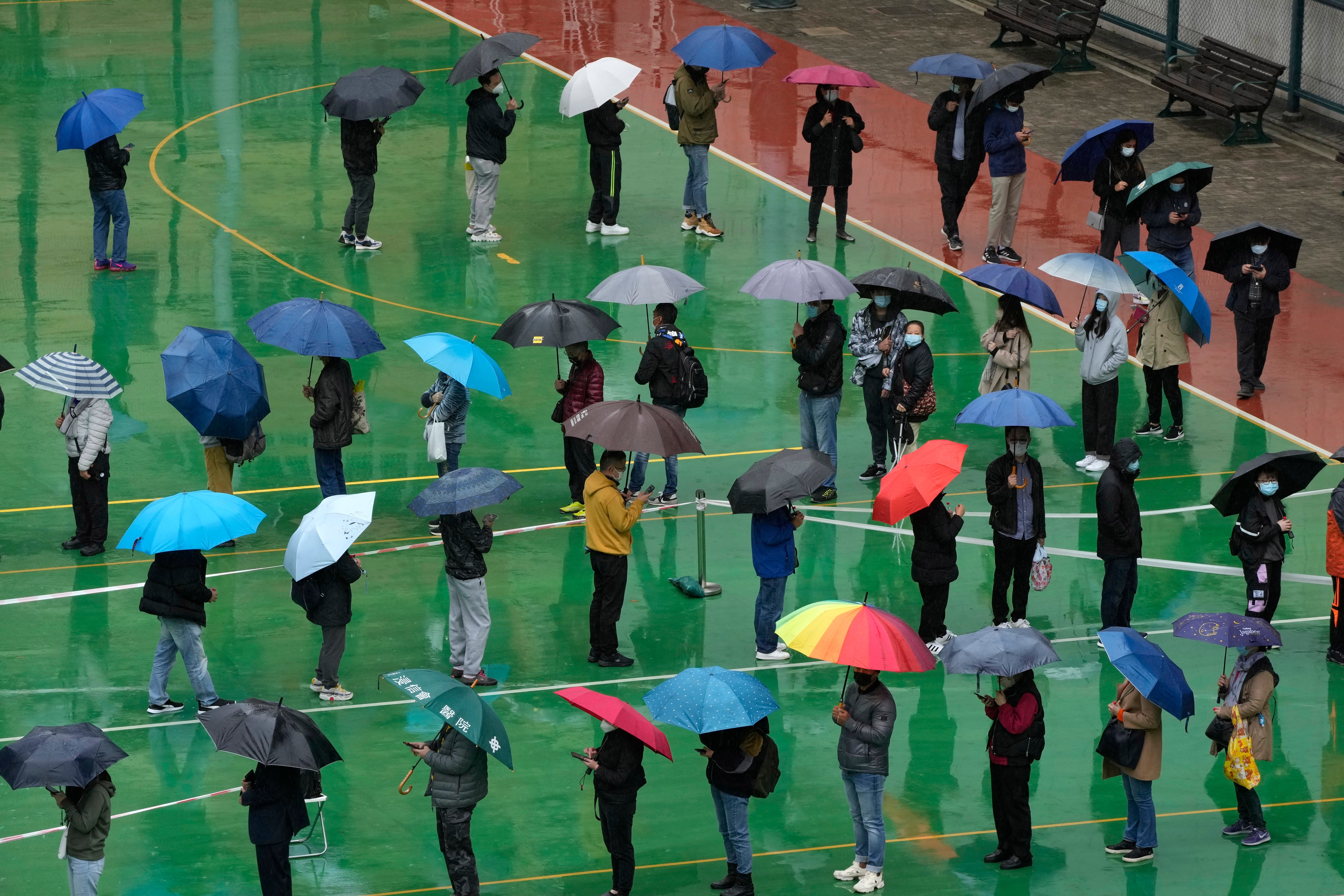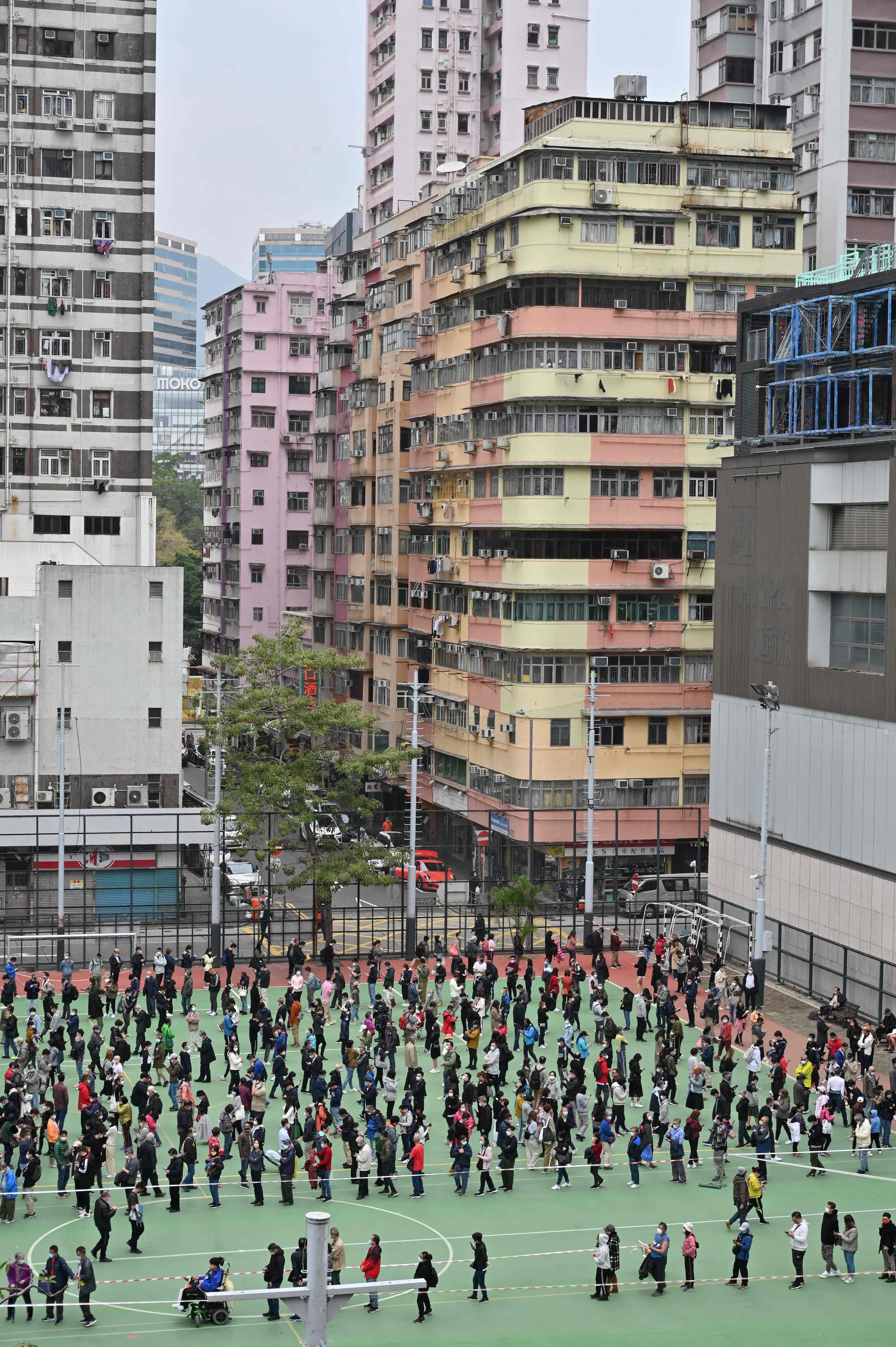Hong Kong to enforce mass Covid testing as city battles record surge
The Chinese-controlled city is experiencing a rapid rise in cases despite its ‘zero Covid’ strategy

Your support helps us to tell the story
From reproductive rights to climate change to Big Tech, The Independent is on the ground when the story is developing. Whether it's investigating the financials of Elon Musk's pro-Trump PAC or producing our latest documentary, 'The A Word', which shines a light on the American women fighting for reproductive rights, we know how important it is to parse out the facts from the messaging.
At such a critical moment in US history, we need reporters on the ground. Your donation allows us to keep sending journalists to speak to both sides of the story.
The Independent is trusted by Americans across the entire political spectrum. And unlike many other quality news outlets, we choose not to lock Americans out of our reporting and analysis with paywalls. We believe quality journalism should be available to everyone, paid for by those who can afford it.
Your support makes all the difference.Hong Kong will enforce mandatory Covid testing from mid-March as the city battles its worst outbreak of the virus so far and hospitals face being overwhelmed.
Leader Carrie Lam said stringent restrictions will be in place until mid-April, as the Omicron variant drives an “exponential” rise in infections which has strained the healthcare system.
Researchers from the University of Hong Kong predict that daily cases in the city could within weeks reach 180,000 – around as high as the UK's record daily figure despite having only one-tenth of the its population at 7.4 million.
Hong Kong is home to some of the most densely populated districts on Earth and most residents live in high-rise apartment blocks cheek by jowl with family members and often sharing cramped lifts.
Each of Hong Kong’s residents will be tested three times in March, with daily testing capacity being boosted to 1 million.
Ms Lam said: “The coming one to three months are crucial in fighting the pandemic.”
She reiterated the city's “zero Covid” strategy, in line with mainland China, aiming to eradicate any outbreaks at any cost. She repeatedly thanked mainland authorities for their “staunch support”.
The latest measures are the most draconian to be implemented so far, after two years of relatively low infection rates in the global financial hub.

Gatherings of more than two people are banned and most venues, including schools, gyms and beauty salons, are closed and a 6pm restaurant curfew is in place.
Flights are banned from nine countries, including the UK and US. Ms Lam said the measures have been extended to 20 April.
And summer holidays for schools, which are conducting lessons online, will be brought forward to March-April.
Ms Lam said authorities were not considering a city-wide lockdown, like those implemented on the mainland.
Modelling by university researchers said the course of the current wave was not likely to change without strict social distancing measures, such as a lockdown.
Daily infections have surged by around 70 times since the start of February. Health authorities have reported about 5,000 new daily infections since last Tuesday, but they said a testing backlog meant they did not have the full picture.
By last week, hospitals were at 90 per cent capacity and isolation facilities were full.
Ms Lam acknowledged on Tuesday that the city’s isolation facilities were “severely inadequate” and said it was working with central Chinese authorities to build more.
Hong Kong has reported over 60,000 cases, far less than other similar major cities. However a large proportion of the vulnerable elderly population remain unvaccinated.
The government is aiming to have 90 per cent of residents vaccinated by early March, Ms Lam said, up from 86 per cent currently.



Join our commenting forum
Join thought-provoking conversations, follow other Independent readers and see their replies
Comments